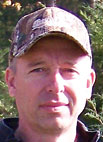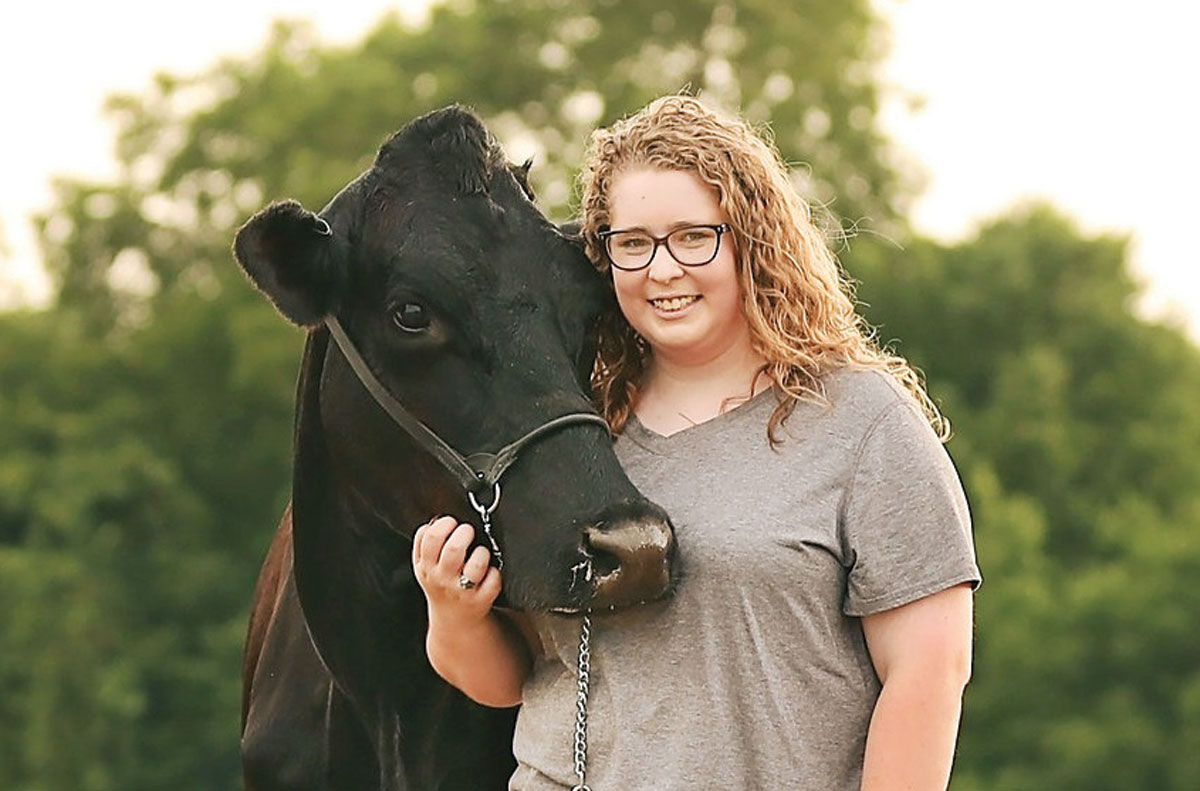
Rob Bramlett has a heart for farming and his life encompasses his family, his buddies and the wisdom of long time farmers.
When Rob graduated from high school he took out a loan and purchased about 30 head of cattle for his first herd. He has been farming ever since. Now the herd consists of 110 cross bred Angus cows. Robs farm consists of 236 acres and he leases over 400 acres in farm land.
Rob is married to Kim and they have two children. Avery is 13 and Alyson is 10. One of the other reasons Rob loves farming is that he can be active in his children’s lives. Rob said Avery is very active on the farm, he jokingly calls Avery the vice-president but in fact they are like partners. Rob said they discuss everything about the farm. He knows every grass, weed and even knows everything there is to know about tractors. The Bramlett family was the 2011 Van Buren County Farm Bureau Farm Family of the Year.
Rob has a management plan for the farm that includes a schedule for calving. He keeps his momma cows in two groups on the farm. There is a spring and fall calving season. Right now about 80 percent of the fall season group will be calving soon. Each group of calves will be weaned at the same time, and then when they get to a certain weight or when the price is the best they will be sold. He sells his calves as a group to buyers who come to the farm.
Even in good years there are unforeseen events, such as natural disasters. For the past three years the issue of drought has been a big event in farming for Rob, as well as many other farmers. Rob learned from the two previous years and made the decision to fertilize his graining and hay fields a month early and heavily in the spring. However there was no rain for the next two months and all of Rob’s efforts were every farmers worst nightmare – he only got 60 bales of hay instead of the 600 he needed, and would have gotten had it rained.
He started calling early to buy hay and purchased approximately 80 percent of the hay near Morrilton in Conway County, and with the drought had to feed it to his cows all summer. He also had to reduce the number of older cattle to survive the drought. Fortunately he had strong ponds and didn’t run out of water, though two of them got very low.
Normally Rob lets the pastures grow up for the cows to feed on in the winter but with the events of this summer the grass never got ahead of the cattle. After the drought, the blight of armyworms was the next disaster to overcome. The farm was hit hard and about 80 percent of grain was lost on two of the farms. Rob inspected his fields as soon as he heard about the infestation and only found a few in one of the hay fields, which caused him to have to cut the field a month early to save the hay. Rob said, “Armyworms can clean fields faster than a herd of cattle.” He also sprayed his fields and saved about half the pastures.
Though this year has been a farming disaster, Rob finds having good friends that also farm and share his experiences really helps through the tough times. They can talk about their experiences and situations. He admires the farmers who have lived through 40 to 50 years of farming, with all they have been through, and loves to hear their stories and advice. “There’s nothing set in stone with cattle farming – no figuring it out,” said Rob. With over 22 years of experience he knows this to be true.







